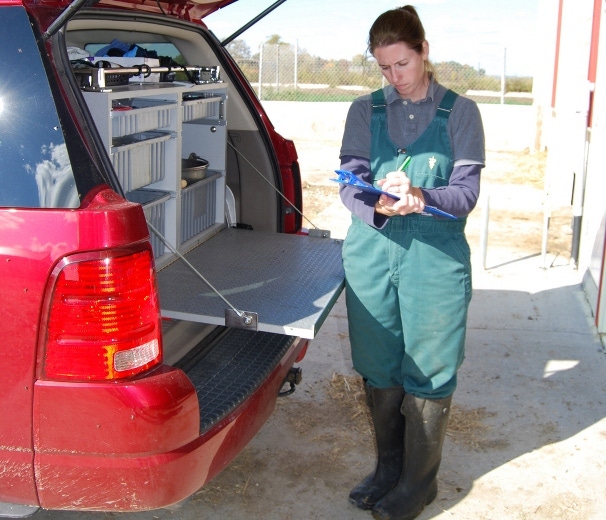U.S. House Passes Veterinary Medicine Mobility Act
July 10, 2014

The passage of the Veterinary Medicine Mobility Act in the U.S. House of Representatives this week means veterinarians are one step closer to being able to carry and use controlled substances to provide complete care outside of their clinics and across state lines. The American Veterinary Medical Association (AVMA) issued a press release thanking Congress for recognizing the important service that veterinarians provide to their animal patients wherever they may be and for bringing the legislation one step closer to the president’s desk.
“The AVMA was established more than 150 years ago by veterinarians who cared for the animals that provided food and transportation for Americans,” said Clark Fobian, DVM, president of the AVMA. “Although times have changed since 1865, veterinarians’ need to travel to their patients has not. Congress made it clear that veterinarians are responsible public servants who must be able to use vital medications to treat their patients—no matter the location—so that they receive the best quality care. We applaud our elected officials for clarifying federal statute, which has left veterinarians confused and concerned over the past year. We look forward to seeing President Obama sign this important legislation into law in the near future.”
Sponsored by Kurt Schrader (D-Ore.) and Ted Yoho (R-Fla.), both veterinarians, in the House, and Jerry Moran (R-Kansas) and Angus King (I-Maine) in the Senate, this legislation makes it legal for veterinarians to transport and use controlled substances beyond their registered places of business. It also allows licensed veterinarians to register in multiple states, regardless of where their principal place of business is located. The Senate unanimously passed its version of the bill on Jan. 8.
Veterinarians have previously been told by the Drug Enforcement Administration that the Controlled Substances Act (CSA) barred registrants from taking controlled substances beyond their registered locations, such as their clinics or homes. This narrow interpretation of the law has been problematic for veterinarians who provide care in a variety of settings. The DEA had also maintained that veterinarians must have a physical address within each state where they want to be registered; this interpretation has restricted veterinarians who live along state borders, but need to provide care in both states.
The AVMA has been actively engaged with the DEA and members of Congress and their staff for more than a year, explaining how this restrictive provision in the CSA affected its member veterinarians’ ability to provide complete veterinary care to their animal patients. The AVMA helped raise awareness on this issue by encouraging members and allied organizations to contact their legislators in support of this important bill, running several advertising campaigns in D.C. publications, and creating a number of multimedia communications products. These advocacy efforts led to more than 27,000 letters sent to members of Congress, bipartisan cosponsorship by 185 representatives in the U.S. House, and the endorsement of the bill by over 130 veterinary medical and other organizations.
You May Also Like



